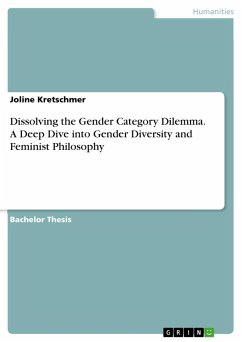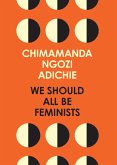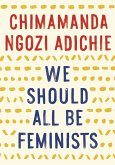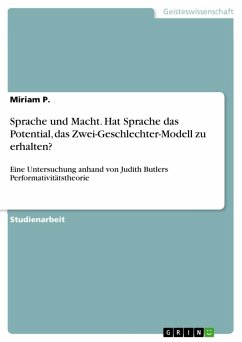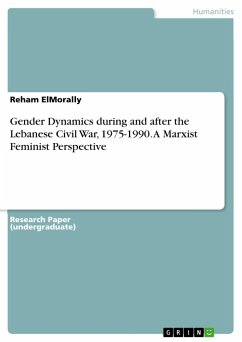Bachelor Thesis from the year 2021 in the subject Gender Studies, grade: 1,3, University of Bonn (Philosophie), course: Feministische Philosophie / Gender Theorie, language: English, abstract: What ¿is¿ a woman (a man; a non-binary person, etc.)? If one tries to answer this question, one quickly gets into a dilemma. On the one hand, feminist philosophers want to refrain from formulating gender categories at all in order not to fall into gender solipsism ¿ the tendency to consider a small group of privileged people as representative of the entire category, excluding the less privileged people in the process. On the other hand, there is a need for gender categories within feminist philosophy in order to be able to address the structures of oppression they entail. In the course of my thesis, I will discuss this dilemma in more detail, examining its origins and some attempts by various philosophers (including among others Elisabeth Spelman, Catharine MacKinnon, Naomi Zack, Talia Mai Bettcher, Sally Haslanger and Katharine Jenkins) to find a way to dissolve it. My aim, however, is not to single out any particular account as the correct one, but rather to show which methodological approaches are generally advisable when one attempts to define gender categories without running into the aforementioned dilemma. My aim in this thesis is to explore what an adequate gender theory might look like in general. Thus, I am interested in working out what methodological shifts are needed in feminist philosophy to dissolve the dilemma. For this purpose, I will draw on various feminist categorization attempts and everyday examples, to illustrate which advantages and problems different approaches entail. Thereby, I will distinguish between i) essentialism, the view that any category is based on a common property, ii) universalism, the view that any category member corresponds to the exact same universal, and iii) realism, the view that the category tracks something in our (social) reality; because this distinction is particularly important to dissolve the dilemma.
Hinweis: Dieser Artikel kann nur an eine deutsche Lieferadresse ausgeliefert werden.
Hinweis: Dieser Artikel kann nur an eine deutsche Lieferadresse ausgeliefert werden.

